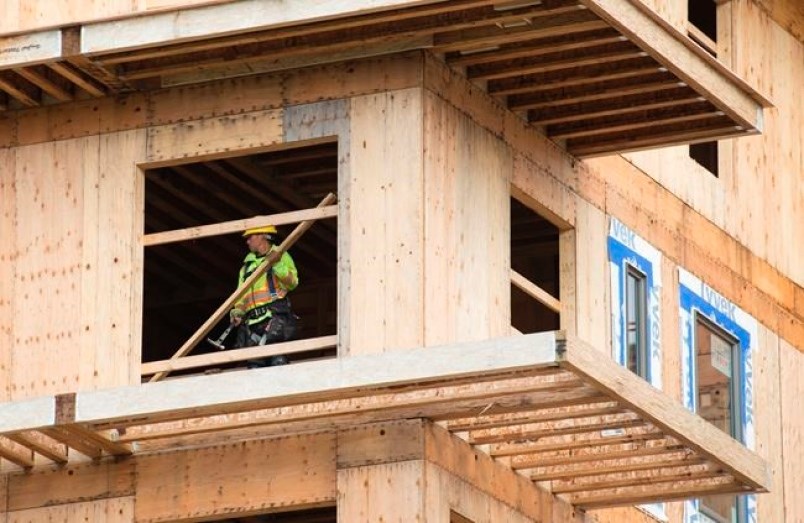It is undeniable that B.C. is experiencing a housing crisis.
Newspaper headlines trumpet this fact, citizens are increasingly approaching their provincial representatives about the issue, and community groups are seeing an increase in people seeking help to deal with a lack of affordable housing and for some, any housing at all.
For seniors, the housing crisis on the North Shore could come to a head soon as many senior renters find themselves facing evictions from apartments or homes which have been, up to now, affordable.
Unfortunately, much of current housing for seniors is in buildings which are aging and must come down only to be replaced with newer expensive developments or they must be renovated, resulting in increased rents.
For seniors who own their homes there are also issues. Seniors may find themselves house rich and cash poor which leaves them with little disposable income. They may be experiencing increasing health issues but are not ready for long-term care or a retirement home. These seniors may only need some extra help in the home, but some may not have family able to assist them. Service providers who often provide assistance to seniors in need of care say there are fewer care workers available as many cannot afford the rents on the North Shore and they might not wish to travel here from more affordable areas.
Some seniors may be isolated or lonely, rattling around in their single-family home. As it has been shown, loneliness for seniors can be one of the most significant health issues they can experience. There are also people who can no longer manage their home and want to live in close proximity to others but cannot pay for an expensive facility. Some seniors may simply wish to downsize but find there are few affordable options in their community despite the proceeds they gained from selling their home.
As a consequence of these issues, seniors may have to move from their community in which they lived for most of their lives. They may have to move from affordable spaces to much higher priced accommodation which could mean less disposable income for necessities. Or they could face homelessness.
In a report to the Seniors Coalition, Hollyburn Family Services Society stated they served 215 clients in 2014 who were homeless or in danger of losing their housing. The average age of these clients was 65 with an almost equal split between men and women, and 99 seniors were about to be evicted from their homes.
Homelessness, or being at risk of homelessness, can be attributed to unexpected circumstances such as illness, loss of a job, death, system glitches, availability and affordability of housing, cost of food and other living expenses, lack of social support, and barriers to housing. It could be argued that housing affordability is the number one factor.
As politicians, researchers, citizens and organizations wrestle with solutions to the housing crisis some of us have been looking for alternative solutions which might help us solve the immediate problem.
The Canadian Association of Retired People website states: “Most people think that they are limited to three options: living at home, in a retirement home, or in a long-term care facility. However, there is a broad spectrum of housing needs and the three conventional options are inadequate for today’s aging population.”
CARP and its counterpart in the U.S., the American Association of Retired People, suggest a variety of options. One option is co-housing where the owners of a residence in a common building are linked to a shared space, such as a yard and gardens, and a large communal room, dining area and kitchen that can accommodate group meals or gatherings. Another option is to renovate your house to include a secondary suite or “granny flat.” Or a person could develop a carriage house on their lot to accommodate a renter.
Home sharing (including intergenerational sharing) is another option. As AARP describes it: “In these arrangements a person who has a home may invite a friend or family member, or even a tenant, to move in and help with expenses and chores.” Arrangements like this (often compared to Golden Girls, a television program where three women share a house with its owner) are popping up in the U.S. and Europe.
Closer to home, Joy Hayden from Hollyburn Family Services Society says the idea of seniors home sharing has been percolating in Canada for some time. Her aim, though, is to create a safe and viable arrangement controlled by a mutually agreed on third party (non-profit) that protects the owner of the house and potential renters.
Called the “Seniors Roommate Registry,” the idea will be discussed at an upcoming public meeting sponsored by the Capilano Seniors Action Table, Capilano Community Services Society, Hollyburn Family Services Society, North Vancouver Recreation and Culture Commission and Lionsview Seniors Planning Society.
The event will be held Tuesday, June 25 from 10:00 a.m. till noon at Delbrook Community Centre. At the event there will be a speakers panel presenting some ideas and options when it comes to housing for seniors and older adults. All interested persons are encouraged to attend.
Margaret Coates is the co-ordinator of Lionsview Seniors’ Planning Society. Ideas for future columns are welcome. Email: lions_view@telus.net
What are your thoughts? Send us a letter via email by clicking here or post a comment below.



